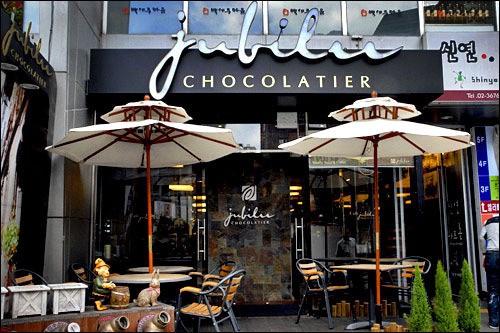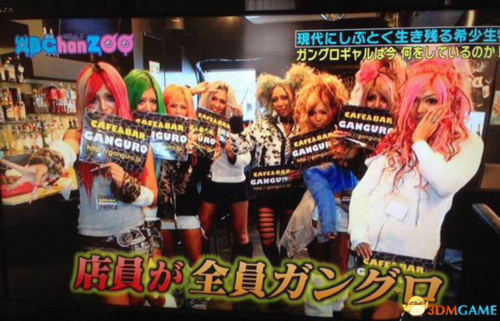Hangzhou shopping malls coffee shops "pile up" only 30% profit

Zhejiang online May 29-Coffee shops in shopping malls "huddled" is no longer a rare phenomenon. Miss Wang, a citizen, is deeply impressed by this: "take Wulin Yintai, for example, there are Starbucks, Costa, Tennie Weenie Cafe and so on within 100 meters; not to mention Hubin Yintai, there are STAYREAL CAF é, coffee to accompany you, and so on."
As described by Miss Wang, the reporter also visited several major shopping malls and found that the standard 3-5 coffee shops in the shopping malls have become the norm. "at most, I have seen as many as a dozen coffee shops inside and outside the mall." In this regard, Lou Boeing, founder of Hangzhou Coffee Dream College, seems to think that this is not uncommon. In his view, it is still highly respected in the industry to open stores with large coffee chains and shopping malls.
"it's not frustration but luck to be able to drive across from Starbucks." These are the exact words of Fu Qi, the boss of Hangzhou Hollys Coffee and Zoo Coffee. So the question is, with so much competition, what on earth do operators think? After shopping, do you often go to the coffee shop in the mall?
"gathering together" to open a store is important.
What are the market segmentation prospects of coffee shops?
Fu Qi opened the ZOO Coffee franchise in Hubin Yintai at the end of September last year, a Korean-themed cafe. Before that, the young woman had already opened a Hollys coffee shop in Hangzhou, but the latter chose to shop on the street and did not enter the shopping mall.
Before that, Fu Qi was also troubled by the location for a long time. After all, the management mode of independent shops and shopping malls on the street is quite different. When entering a shopping mall, the first thing to bear the brunt is the rent. "A good location is always paired with high rent." In spite of this, Fu Qi said, considering the passenger flow of the mall, he compromised before the rent.
This coincides with the starting point of many people wondering about the phenomenon of "coffee shops huddled in shopping malls"-high rents in shopping malls, why are there so many brands that like Starbucks and Costa have moved in?
"it makes sense to open a store with a large coffee chain, because their research around the store is very perfect, which is still highly respected in the industry. Not only that, it is also quite reasonable to follow the mall. Many of the shoppers in the mall are young and fashionable, and they are more receptive to the drink of coffee. " Boeing Analysis, founder of Hangzhou Coffee Dream College.
When something similar occurs on the same platform, the best way for both parties to survive is "differentiated competition". Lou Boeing said that coffee culture itself is very inclusive, can contain a variety of elements, it can build a social platform, can also become a way of life, "there are a lot of cartoon coffee shops, with Starbucks, Costa misplaced competition, can also develop very well."
At the Hangzhou Coffee Dream Institute of Boeing, there are many coffee professionals. "We are often talking about how to do a coffee shop well. in my opinion, if a coffee shop can grasp the two hands of management, marketing, products and services, it will not be a problem for a coffee shop to survive."
Per capita annual coffee consumption in China is only 5 cups.
Are you above or below the baseline?
Like Miss Wang, there are not many people who often patronize coffee shops. According to media reports, the average annual coffee consumption in China is 5 cups per capita, which is far lower than the annual average of about 300 cups in Japan and South Korea. Are you above or below the baseline?
According to Lou Boeing, this also has something to do with per capita income. "the price of a cup of coffee in Frankfurt is 0.89 euros, but the local per capita monthly income can reach 3000 euros. Our price for a cup of coffee is nearly 30 yuan." Lou Boeing said.
But perhaps it is the low per capita coffee consumption that makes many entrepreneurs see the market potential. Starbucks, an American coffee chain that has been in the Chinese market for 16 years, also threw out its latest "five-year plan" at the end of last year and proposed to have 3400 stores in China in 2019.
In spite of this, Lou Boeing often discusses with students at the Dream College, "Coffee shops should be opened carefully. It is best to open one for as little as 500000 yuan." His concerns are not unreasonable. "at present, there are estimated to be more than 1000 coffee shops in Hangzhou, but only 30% of them are profitable. Many of them are Starbucks, Costa and other chain coffee shops. Many coffee shops have closed down after opening for half a year. How can we not be cautious?" (Zhang en, Daily Business Daily)
Important Notice :
前街咖啡 FrontStreet Coffee has moved to new addredd:
FrontStreet Coffee Address: 315,Donghua East Road,GuangZhou
Tel:020 38364473
- Prev

The popularity of "parrot smell" in Japanese Little Bird Cafe has become a popular reason.
File photo: parrot. Chinanews.com, May 27-according to Japanese media reports, as more and more young women in Japan like parrots, bird-themed cafes have emerged one after another in various parts of Japan. Some people think that by touching and listening to birds, they feel cured in the store, which may be the reason why Bird Coffee is so popular. It is said that there are many people with the unique taste of parrots like flowers and nuts.
- Next

Matt Cafe in Japan is very popular in China.
If you have the opportunity to travel to Tokyo, Japan, be sure to experience Shibuya ganguro Cafe, the Japanese fashion cafe for black-faced girls. Ganguro is a fashion popular among young women in Japan to tan their skin and dye their hair blond or orange. The fashion peaked around 2000, but it hasn't faded to this day. Shibuya and Ikebukuro in Tokyo
Related
- What brand of black coffee is the most authentic and delicious? what are the characteristics of the flavor of the authentic Rose Summer Black Coffee?
- Introduction to the principle and characteristics of the correct use of mocha pot A detailed course of mocha pot brewing coffee is described in five steps.
- Which is better, decaf or regular coffee? how is decaf made?
- How much is a bag of four cat coffee?
- How about four Cat Coffee or Nestle Coffee? why is it a cheap scam?
- Which is better, Yunnan four Cats Coffee or Nestle Coffee? How about cat coffee? is it a fake scam? why is it so cheap?
- How about Cat Coffee? what grade is a hoax? which instant coffee tastes better, four Cat Coffee, Nestle Coffee or G7 coffee?
- Process flow chart of coffee making-Starbucks coffee making process what coffee tastes good at Starbucks
- The top ten best coffee beans in the world Rose summer coffee or Tanzanian coffee tastes good
- Yunnan four cat coffee is good to drink?_four cat coffee is a big brand? four cat blue mountain coffee is fake?

